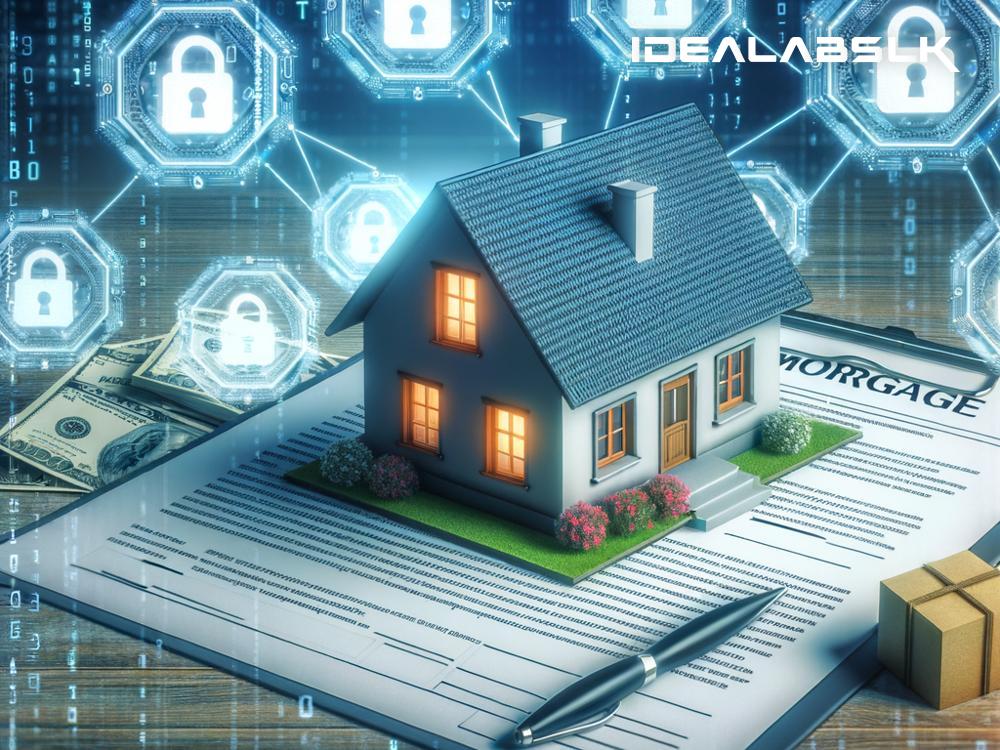Unlocking Efficiency: How Blockchain Revolutionizes Real Estate Mortgage Processing
Buying a home is a significant milestone. However, the journey from eyeing your dream home to actually owning it involves navigating through a tedious mortgage process. This process, traditionally paper-heavy and slow, is ripe for innovation. Enter Blockchain technology—a powerful tool that is transforming industries worldwide with its ability to offer secure, transparent, and efficient transactions. But how exactly does blockchain fit into the world of real estate mortgages? Let's break it down into simple English.
The Traditional Mortgage Process: A Brief Overview
Imagine you've found the perfect home and you're ready to buy it. You'd typically approach a bank or mortgage lender to borrow the necessary funds. What follows is a lengthy process involving lots of paperwork, third-party verifications, credit checks, property evaluations, and closing procedures. This can take anywhere between 30 to 60 days, sometimes even longer. The process is not just time-consuming but also fraught with inefficiencies, errors, and fraud risks.
What is Blockchain?
Blockchain is essentially a digital ledger system that records transactions in real time across a network of computers. Once a transaction is recorded on this ledger, it's almost impossible to change. This makes blockchain exceptionally secure and trustworthy. Originally designed for Bitcoin, blockchain technology now finds applications across various sectors, including real estate.
Blockchain in Real Estate Mortgage Processing
-
Improved Transparency and Trust: Every step in the mortgage process, from the initial application to the final settlement, can be recorded on the blockchain. This ensures all parties involved, including buyers, sellers, lenders, and lawyers, have access to the same information in real-time, thereby reducing misunderstandings and disputes.
-
Speed and Efficiency: Blockchain can digitize and automate many steps of the mortgage process through smart contracts. These are self-executing contracts where the terms are directly written into code. For instance, a smart contract could automatically release funds once both parties meet certain conditions, like passing a property appraisal. This automation can significantly cut down the processing time from months to weeks or even days.
-
Security and Audit Trail: The immutable nature of blockchain means that once something is recorded, it can’t be altered or deleted. This creates a verifiable and permanent audit trail for every transaction related to the mortgage. It significantly reduces the risk of fraud and makes it easier to verify property titles, transaction histories, and the legitimacy of all parties involved.
-
Cost Reduction: By reducing the reliance on paper-based processes, third-party verification services, and manual checks, blockchain has the potential to save both lenders and borrowers significant amounts of money. These savings stem from decreased processing times, lower risk of fraud, and reduced overhead for managing loans.
-
Enhanced Accessibility: Blockchain can open doors for people who are usually underserved by the traditional mortgage industry. For example, the secure and transparent nature of blockchain can provide lenders with a more reliable way to assess the creditworthiness of applicants, potentially increasing loan approvals for people with less traditional financial backgrounds.
Real-World Applications and Future Outlook
While the integration of blockchain into real estate mortgages is still in its early stages, some companies and countries are already experimenting with this technology, witnessing promising results. For instance, certain U.S. states have begun using blockchain to record property deeds and transactions, ensuring faster and more secure processing.
Going forward, as more stakeholders in the real estate sector recognize the benefits of blockchain, we can expect broader adoption and further innovations. This could include more sophisticated smart contracts that automate even more aspects of the mortgage and property transaction process, further speeding up home buying and selling.
Wrapping Up
Blockchain in real estate mortgage processing is not just a futuristic concept but a tangible innovation that is beginning to make its mark. By offering transparency, efficiency, security, and cost savings, blockchain technology has the potential to transform the cumbersome mortgage process into a smoother, faster, and more user-friendly experience.
The shift to blockchain-based mortgage processing won’t happen overnight. It requires collaboration among various stakeholders, including governments, financial institutions, and technology providers. However, as the technology matures and more success stories emerge, blockchain could very well become an integral part of how we buy and finance our homes in the future, ushering in a new era of efficiency and accessibility in real estate transactions.

